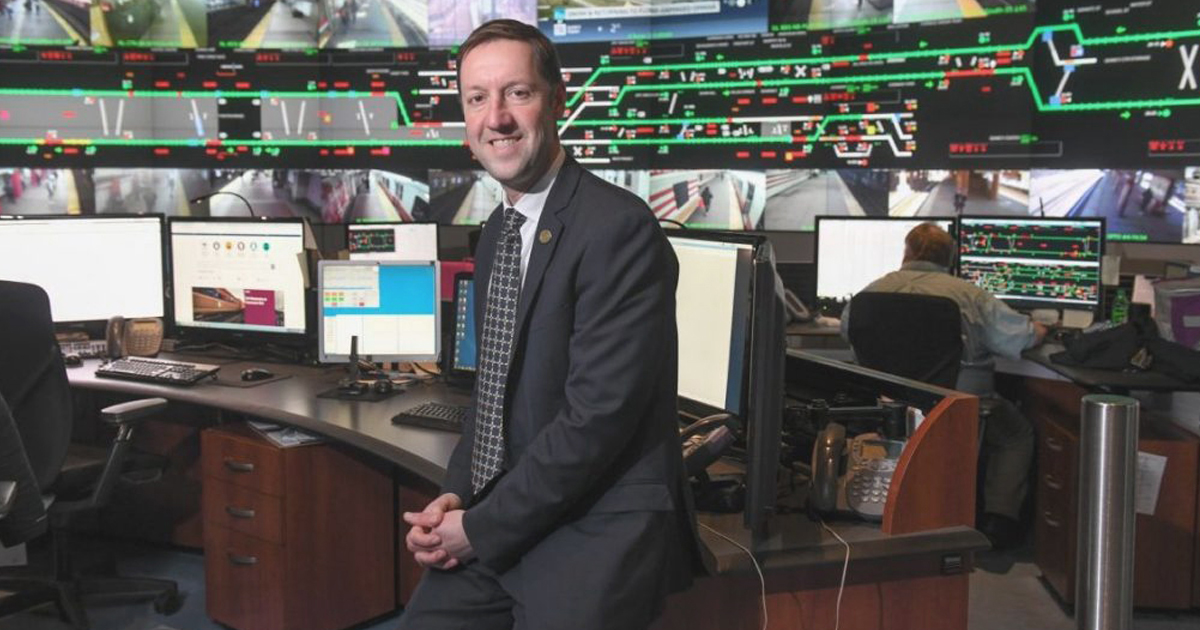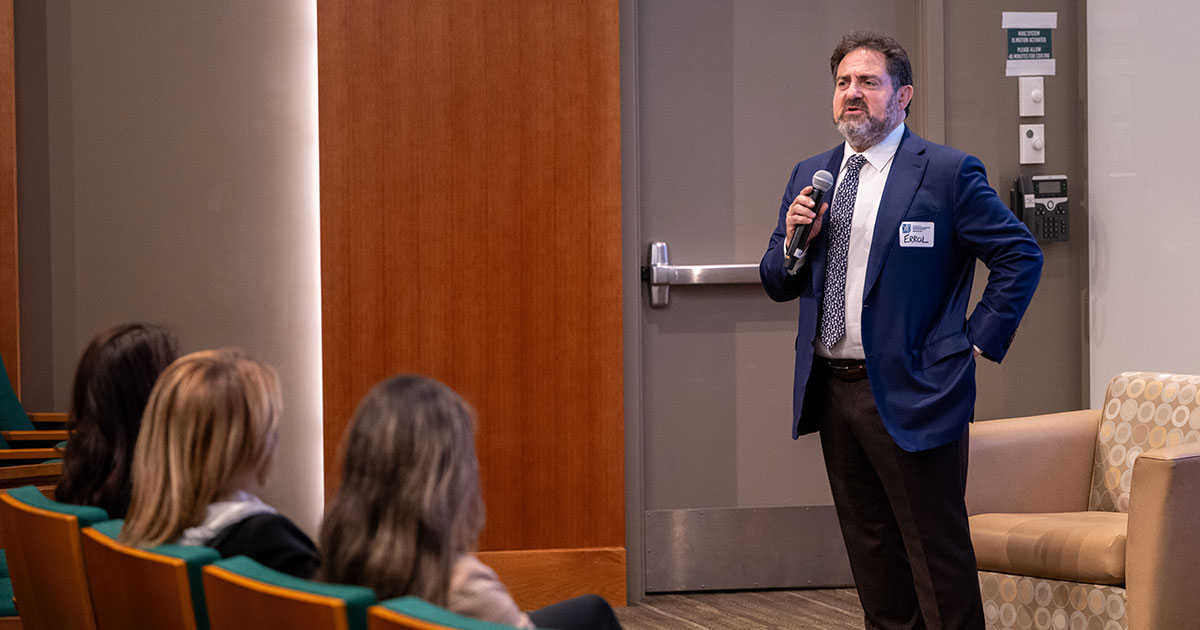The Man at the Top of the T

The day after Steve Poftak MBA’98 took over as the new general manager of the MBTA in January, The Boston Globe ran an editorial that started off by saying, “Congratulations—and condolences—to Steve Poftak.”
The editorial then added, “It’s a tough, thankless job, but someone has to do it.”
Indeed, leading the beleaguered transit agency is not an easy task. Poftak is the fifth person under Massachusetts Governor Charlie Baker to be the MBTA’s general manager. His predecessor lasted only 15 months.
“I am not naive about the demands of the position. I know what I am getting into,” says Poftak, no stranger to the agency, having previously served as vice chair of the MBTA Fiscal and Management Control Board. He also did a stint as interim general manager in 2017.
From aging infrastructure to budget shortfalls, the MBTA is certainly facing a fair share of challenges, but Poftak is honored to lead an agency that is so essential to the day-to-day vitality of the Boston area. “I think it’s a great job. I’m humbled to have it,” he says. “The MBTA provides a great service. I believe in its mission to move people every day.”
That mission to move people is now Poftak’s responsibility. With its 6,600 employees and an annual operating budget of $2 billion, the MBTA provides 1.3 million trips a day to riders on its bus, rail, subway, and ferry lines. “Every day, the lights come on and we’ve got to deliver those trips,” Poftak says. “That is an ongoing challenge. We are all motivated to make this system work better and serve people more efficiently.”
A High-Profile Job
Being the transit agency’s leader is arguably one of the toughest jobs in New England. As compared with the heads of other public agencies, the MBTA’s general manager is a high-profile position. Whenever a bus is late or a subway is experiencing signal problems, Poftak knows that riders are thinking of him. “You have to be willing to accept that,” Poftak says. “People care about the MBTA. People are passionate about it.”
A Boston resident, Poftak also takes the MBTA to work. He’ll either ride the commuter rail, or hop on the bus to the subway station. Most conductors on the train have figured out who he is, says Poftak, and he likes to introduce himself to bus drivers after they’ve parked their buses. The drivers are typically surprised to see him.
“It’s great to talk to the workforce,” Poftak says. “The jobs they do aren’t easy. It’s about recognizing them and showing appreciation.”
Attracting and retaining great employees is just one of the many issues Poftak hopes to address at the MBTA. To make the agency’s service more reliable and welcoming, he has a long to-do list, including cleaning stations, installing new signals, adding new cars, and redesigning bus routes.
Over the next five years, he is charged with executing an ambitious $8 billion capital plan, one he calls a “necessary underpinning to creating a more reliable MBTA.”
An Inflection Point
Being the MBTA’s leader may be a complicated job, but Poftak seems well-suited for it. Beyond his previous MBTA experiences, he is knowledgeable about public policy. He is the former executive director of the Rappaport Institute for Greater Boston, a research and policy center at the Harvard Kennedy School. Prior to that, he was at the Pioneer Institute for Public Policy Research.
Importantly, he also is a Babson graduate. “I cherish my time I spent at Babson. I view it as an inflection point in my career,” Poftak says. “Babson gave me a set of skills that my previous education and experience had not. It gave me the analytic capacity to understand and run a complicated organization. And, it gave me the people skills to work with other talented individuals.”
Poftak encourages other MBA graduates to consider working in the public sector. Yes, the work is challenging, he says, but it’s for the greater good of the community. “It’s incredibly gratifying work. There is an opportunity to make an impact.”
The top image for this story was photographed by Faith Ninivaggi at the Boston Herald.




